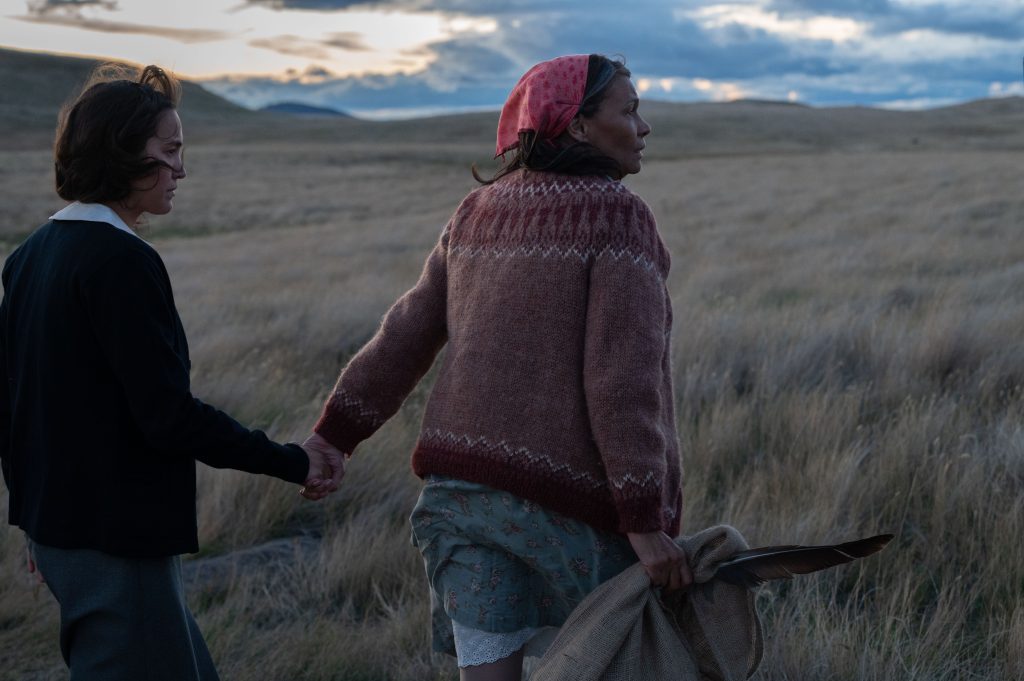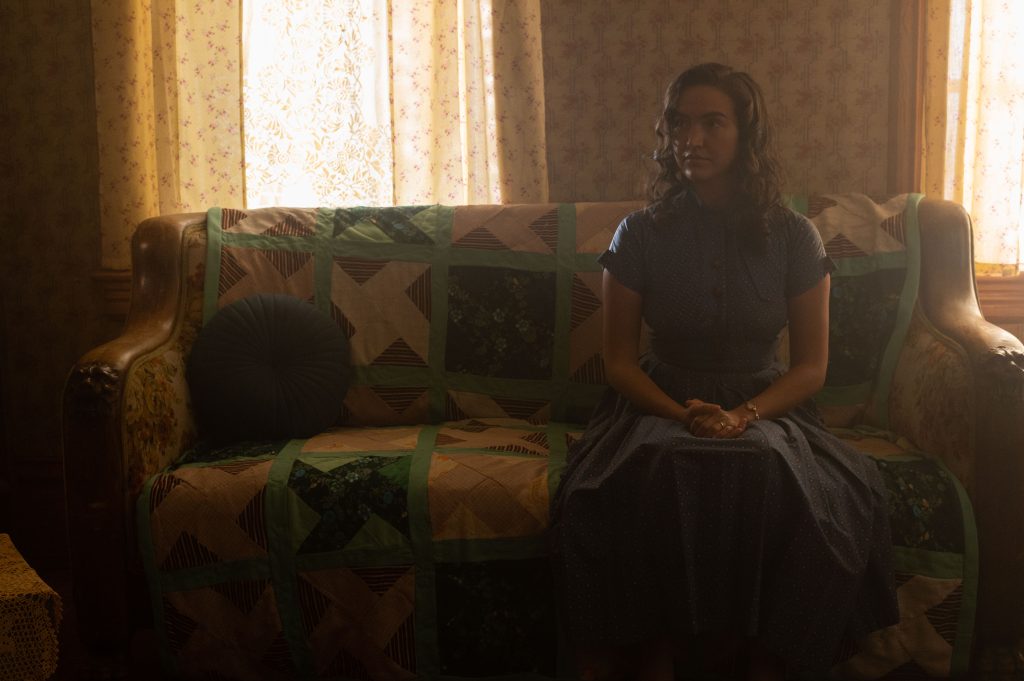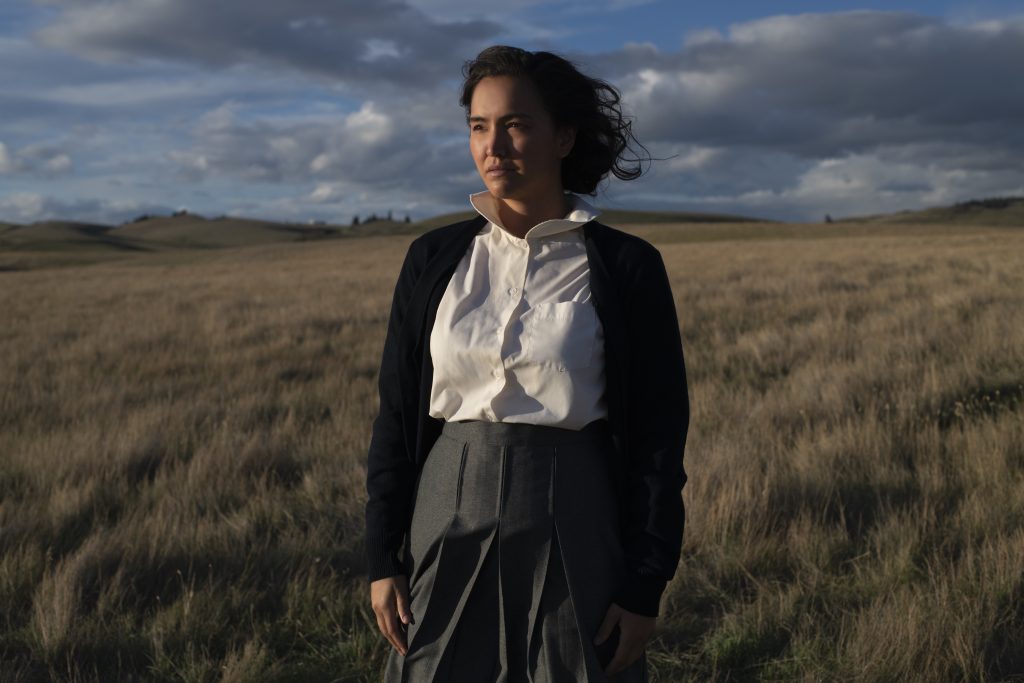REVIEW: Bones of Crows is the beginning of a hard, but necessary conversation

Posted June 2, 2023 3:39 pm.
Last Updated June 9, 2023 1:40 pm.
Canada’s residential school system is cultural genocide, one that was administered by the church. There’s no ifs, ands or buts here, this was cultural genocide. It was an attempt to stomp out numerous Indigenous cultures by killing the culture in children, and replacing with with Christian values taught via abusive methods. Former Prime Minister Stephen Harper apologized back in 2008, as did Prime Minister Justin Trudeau in 2017 for the nation’s role in this cultural genocide. Pope Francis called it genocide back in July last year, and in October, the House of Commons passed legislation formally recognizing it as genocide.

Grace Dove in Bones of Crows.
Photographs by Derek Rodgers
Bones of Crows is a film about the genocidal residential school system as seen through the perspective of a Cree woman called Aline Spears (played by Grace Dove from the Revenant and Alaska Daily). She and her three siblings are taken to a residential school in Manitoba as children in the 1930s, and the film shows the effects of this system over the course of her long life. From the sexual and physical abuse she suffered by those supposed to take care of her, to the mental health issues surrounding her family members as they grow up, and the apathy from those who don’t seem willing to listen.
Bones of Crows is about what happens when a nation tries to commit cultural genocide. It examines that in close detail, and does not shy away. This can be a tough, harrowing watch for many. The film depicts addiction, depression, suicide, system abuse, and much more. But ultimately this film is hopeful. This film believes, like Sam Cooke did, that a change is gonna come. Directed by Métis filmmaker Marie Clements, Bones of Crows is the beginning of a conversation about our nation’s shameful past.
It’s an engaging drama centered around a truly astounding performance from Dove. She shows all the happy moments of her life with a bittersweet tension simmering under everything, and the truly tense moments are where she excels. Through the tough steely moments, and the times when Aline nearly breaks down, Dove commands the screen and the audience’s attention. Without a performance as engaging, charismatic, and beautiful as hers this film could easily fall apart.
The film seems to occupy two states of mind simultaneously. Firstly, it wants to create Indigenous representation on the screen for the survivors of the residential school system. For an Indigenous audience, people can recognize their own experience or the experience of their ancestors. But for a non-Indigenous audience, the film also informs about the experience. Many of us who aren’t Indigenous don’t know the horrors of the residential school system, and many of us don’t prioritize learning about it. Bones of Crows wants to portray that experience, give the audience the perspective.

Grace Dove in Bones of Crows.
Ayasew Ooskana Pictures
That said, can this film connect with many non-Indigenous audiences? For many people watching this, it could be too uncomfortable. The film is frank about every part of the genocidal system, and for many that might feel excessive. Some might watch this and only see the trauma, and not the meaning. Can a film like this actually change a person’s mind, or could it have the opposite effect? Could someone see the abuse that children suffer from nuns in this film, and be so hurt they refuse to engage with it?
This is a problem many people of privilege have, because they haven’t gone through any trauma themselves (at least not on this level). It’s uncomfortable to talk about, more so to watch unfold. A film like this could add in positive moments to balance the trauma, but would that lessen the impact?
Perhaps the trauma isn’t the way to go. Perhaps a film that’s more willing to have a conversation without depicting the horrors could help more non-Indigenous people be comfortable in having that conversation. But something like that, to lose the depiction of the trauma that so many have endured, feels wrong. At best, it’s dismissive of their experience, and at worst it could be seen as more cultural genocide. To forget the experience means we forget the lessons learned, and we could do it again. As Bones of Crows begs of its audience, that can’t happen.
For those who enjoy this film and want to learn more, there’s going to be a miniseries expansion coming out later this year on CBC. As Dove says, it’s going to expand the story to show more of the trauma and resilience of survivors. “I am maybe the centre, but now we get to see her parents more, her siblings more, her children, her grandchildren.”
This is a powerful film that many will likely not watch because of how uncomfortable it is. But this film is an education. The story is fictional, but based of the true experiences of thousands of residential school survivors. It’s a film and a conversation that Canadians shouldn’t shy away from, and hopefully they won’t. This tough, but amazing film is in cinemas now. I give it a 4/5, and you can watch my interview with Grace Dove below.








